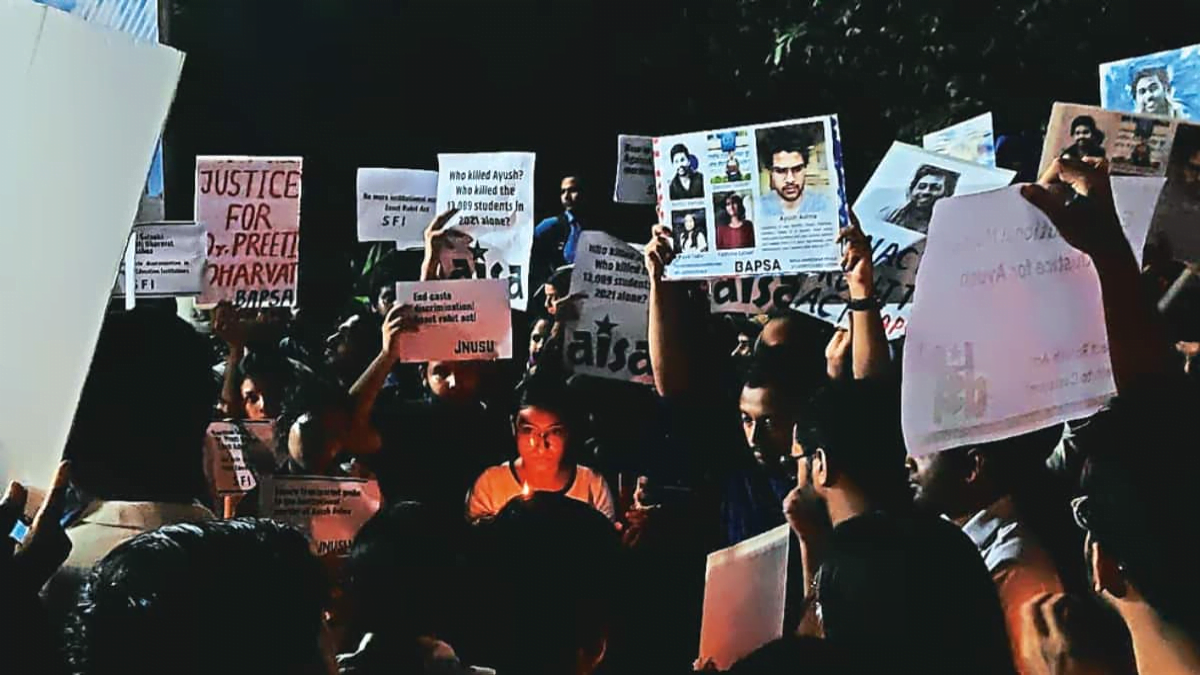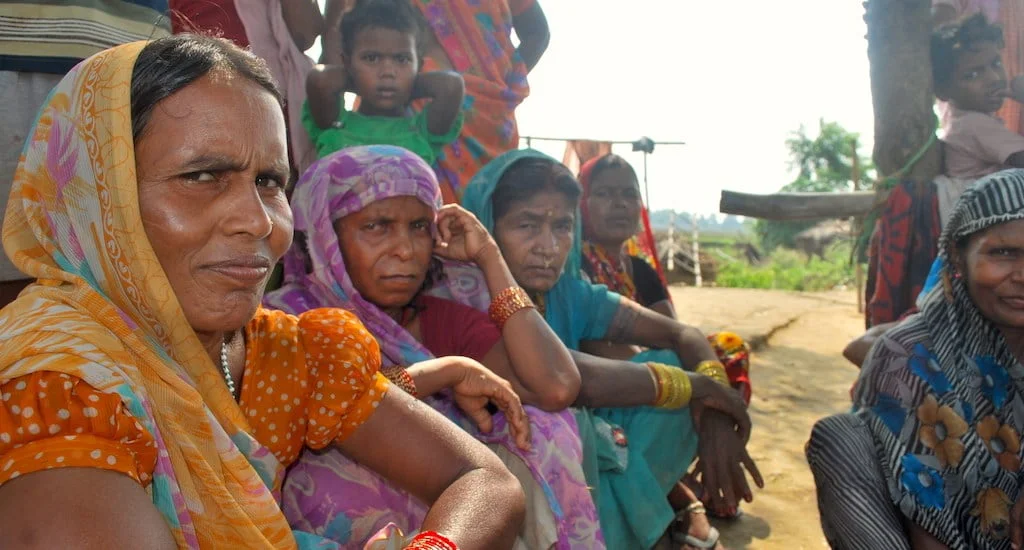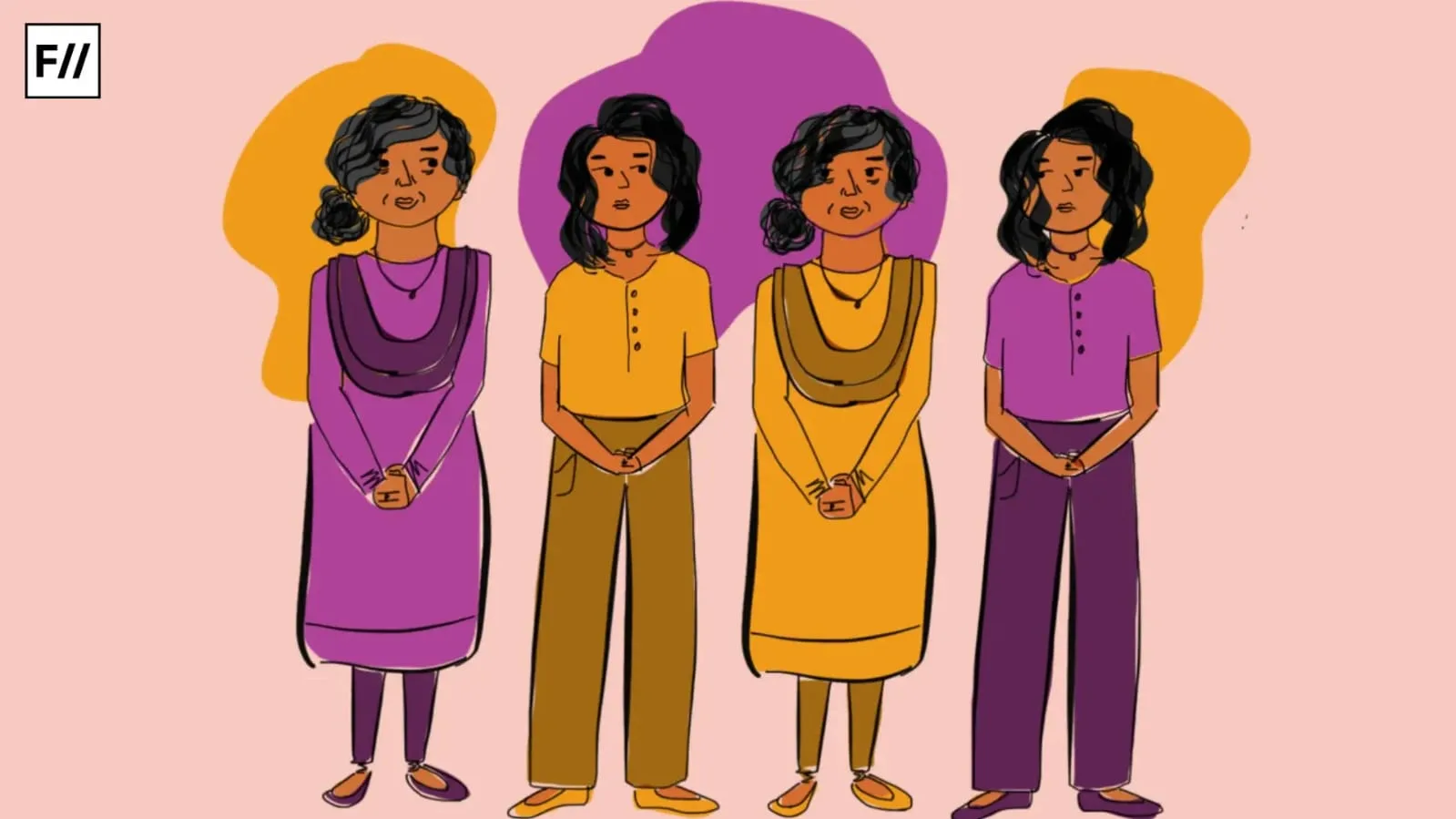On September 1, Friday the nation woke up to the unfortunate news of a 21-year-old student from the Indian Institute of Technology (IIT) Delhi, who died by suicide. The student named Anil Kumar, pursuing BTech from the 2019 batch allegedly hanged himself in the hostel room.
According to the reports, the student was supposed to vacate the hostel by June as mentioned in the institute’s rules but was on a six-month extension since he had failed to clear some of the subjects.
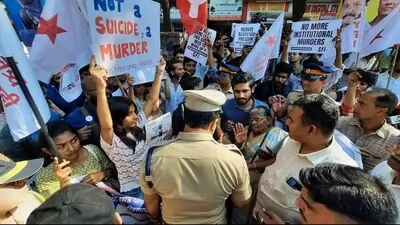
This in less than two months, is a second case of suicide at the Indian Institute of Technology Delhi. In July, this year, a 20-year-old student, Ayush Ashna, was also found hanging inside his hostel room in Udayagiri Hostel.
These incidents draw attention to the growing mental health crisis in India’s highest educational institutions which is being exacerbated by issues with not having good mentors to support the students, caste discrimination, and treating the marginalised communities coarsely. It is very much evident that the well-being of students at these prestigious universities needs the nation’s immediate attention.
IIT and beyond: statistics shows the intensity of the issue
Unfortunately, these are not uncommon incidents. Every year, students studying in these institutions were killing themselves. The peaking number of suicides in India has become an alarming warning to everyone in the nation.
According to data from the National Crime Records Bureau (NCRB), suicides in India have increased by 70 per cent between 2011 and 2021.
According to data from the National Crime Records Bureau (NCRB), suicides in India have increased by 70 per cent between 2011 and 2021. The number of student suicides cases in India since 2011 has increased with each succeeding year. In 2020, a student committed suicide every 42 minutes or more than 34 students ended their lives each day.
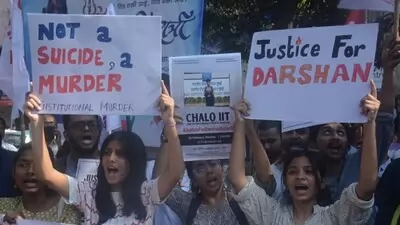
The data shows that since 2014, at least 137 suicide cases have been reported across 135 different Higher Education Institutions. These include Indian Institutes of Technology (IITs), National Institutes of Technology (NITs), Central Universities, Indian Institutes of Science Education and Research (IISERs), Indian Institutes of Information Technology (IITs) and School of Planning and Architecture (SPAs). More than half of these, 91 suicides, were reported between 2018 and 2022, said the report.
Since the beginning of the year 2023, at least seven students from IITs across India have ended their lives. Four deaths in IIT Madras, two deaths in IIT Delhi and one in IIT Hyderabad, shows the news reports.
Suicide cases in the IITs are questioning the educational system
Last March, a student from IIT Madras who was unable to cope with the stress committed suicide. Within a small interval, in August, a 21-year-old post-graduate student of the Indian Institute of Technology, Hyderabad (IIT-H) was found dead in her hostel room on the campus due to severe mental pressure, said another report.
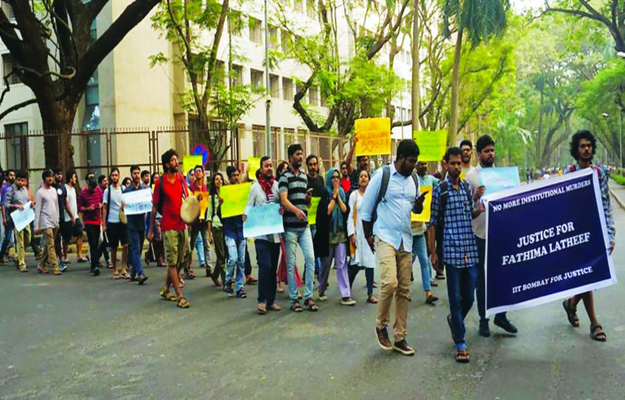
The statistics of the reports with the rising number of suicide cases day by day amongst Indian students indicate a consistent upward trajectory in student suicides in India since 2011 which is alarming for the nation. It also stresses the need to address academic stress and mental health. No ‘academically brilliant and smart‘ student needs to be socially and mentally unhappy.
Caste discrimination survey backlashes at IIT Delhi
The number of recent incidents of students who passed away by suicide belonging to Scheduled Caste (SC) communities at IIT-Delhi is a triggering statistic. It lays bare the grim face of casteism in educational institutions. According to a report from India Today, in fact, of the 34 suicides between 2014 and 2021, 18 were by students from the Scheduled Caste and Other Backward Class communities. In 2021, the education ministry told the Rajya Sabha that 63 per cent of the undergraduate students who dropped out of the top seven IITs were from the backward category.
Unfortunately, in India, most of the people, especially students, are routinely subjected to casteist discrimination. Along with the academic stress and pressure, the casual casteist treatment on campus can also affect the students’ mental and physical health.
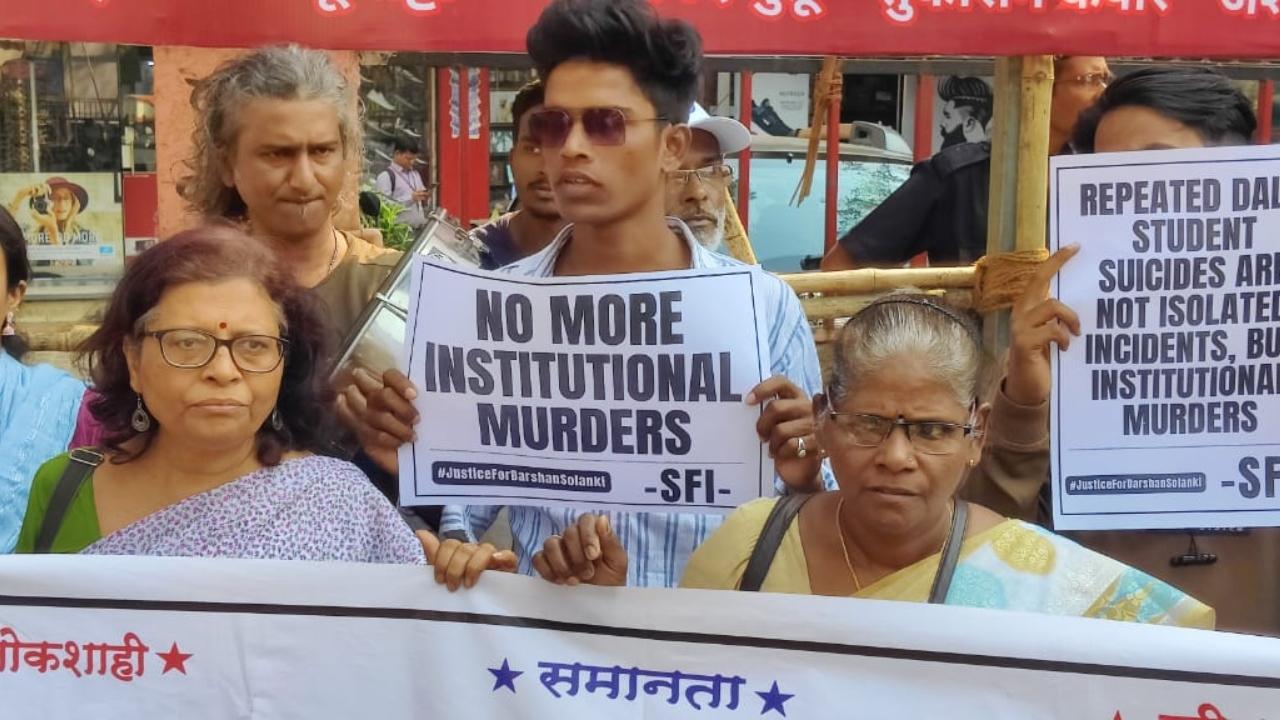
The death news has prompted many individuals, particularly SC and ST students in the country, who are battling estrangement from various domains of the country to acquire equal rights and justice for the community.
According to a recent news report, soon after the suicide of the two students, a caste discrimination survey was announced across campus which was also suspended as several students probed about the survey questions being biased and insensitive.
What went wrong? Who is to blame? How to correct it?
The rising numbers of suicides are concerning, raising many questions, especially regarding the cases that occured within very short intervals in prestigious educational institutions around the nation.
The rising numbers of suicides are concerning, raising many questions, especially regarding the cases that occured within very short intervals in prestigious educational institutions around the nation.
According to the recent reports on Director Rangan Banerjee’s media interaction, it was said that the institute was taking steps to care for the mental health of students. They even dropped one of set of the mid-semester exams to lessen the stress among the students and are thinking about setting up a system to give counselling to the students who needs help.
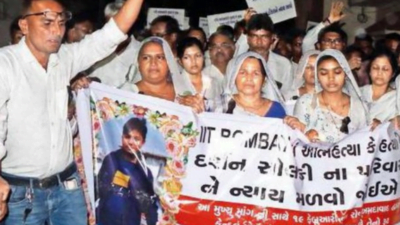
As the world observed World Suicide Prevention Day last Sunday, it is concerning to see how the nation still tussles with the suicide case numbers peaking towards an alarming future.
Normalising extreme competition right from childhood to living under pressure constantly to get into Institutions like IIT and IIM, not understanding the need to tackle stress and remove pressure through open conversations, and rigorous schedules in the institutions are the reasons for these alarming statistics about student suicides.
This World Suicide Prevention Day, it is crucial to remind ourselves and the people around us of the importance of having open conversations with our community
This World Suicide Prevention Day, it is crucial to remind ourselves and the people around us of the importance of having open conversations with our community. Only then we can mould a society that is healthier and kinder. The pressure that starts in schools to source a seat to any prestigious college or courses and barely surviving through it all can take a toll on anyone’s mental health irrespective of gender. Starting from family, friends and the circle, having a support system is essential and breaking the odds to learn more about life other than the loop trap of the rat race in the educational system has become the need of the hour.
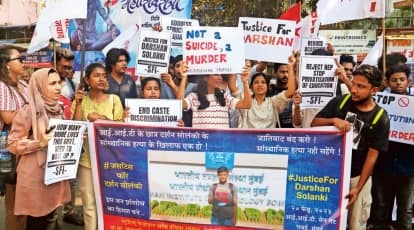
‘At Indian Institutes of Management (IIMs), the levels of peer pressure and academic stress often surpass what an average student can effectively manage. Unhealthy competition is actively encouraged within both the student body and the faculty, making it nearly inevitable for students to become part of the relentless race for success. Management and educators defend this approach by asserting that it readies students for the harsh realities of the corporate world, a claim unfortunately validated by real-world experiences. Thus, it becomes evident that the system in India has significant shortcomings across multiple dimensions‘ said Shilpa Suresh, alumnus of IIM Raipur, from the batch of 2020, in light of recent issues.
Everyone in society needs to raise awareness about removing the taboo against mental health issues which led many to take a harsh step. Building a robust career is as important, so is building a healthy mind and body.
Each suicide case we read represents a deeply personal tragedy, prematurely ending an individual’s life and leaving a lasting impact on the families, friends, and communities involved.
Each suicide case we read represents a deeply personal tragedy, prematurely ending an individual’s life and leaving a lasting impact on the families, friends, and communities involved. Also, this is a scream of many unheard voices against the many issues that need the unwavering attention of governments, society and the people.
